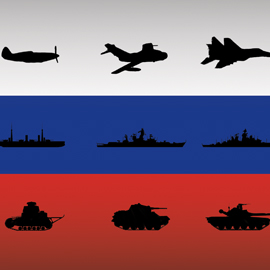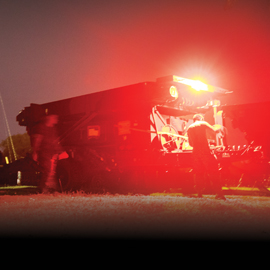Publications
"Nobody does defense policy better than CSBA. Their work on strategic and budgetary topics manages to combine first-rate quality and in-depth research with timeliness and accessibility—which is why so many professionals consider their products indispensable." – Gideon Rose, Editor of Foreign Affairs, 2010-2021
Littoral Combat Ship: An Examination of Its Possible Concepts of Operations
In 2008, the US Navy commissioned USS Freedom (LCS-1), the first of a new type of ship, the Littoral Combat Ship (LCS), produced by Lockheed Martin. It anticipated commissioning a second, distinctly different LCS variant, to be named Independence (LCS-2), produced by General Dynamics, late in 2009. Despite initial issues with design, operational requirements, and especially cost growth, the Navy plans to order substantial numbers of one variant to help address the problem of declining surface ship force levels.
Why AirSea Battle?
For well over half a century, the United States has been a global power with global interests. These interests include (but are not limited to) extending and defending democratic rule, maintaining access to key trading partners and resources, and reassuring those allies and partners who cooperate with the United States in defending common interests. The United States’ ability to project and sustain military power on a large scale has been, and remains, essential to this endeavor.
Defense Planning for the Long Haul: Scenarios, Operational Concepts, and the Future Security Environment
Senior defense officials face a host of critical issues when assessing the nation’s military posture. Most importantly, they are responsible for determining which threats the United States must be prepared to address, what capabilities will be required to do so, and how the US military should be organized, trained, equipped, and employed to counter these threats successfully if and when they materialize.
US Nuclear Forces: Meeting the Challenge of a Proliferated World
This report seeks to provide the basis for an informed and constructive debate over the role of nuclear weapons in the overall US defense posture. To this end, the principal focus is on identifying the existing and emerging security environment as it pertains to nuclear weapons. The report also offers some recommendations on how the United States might best respond to the challenges posed by nuclear proliferation, and, hopefully, create a more secure global environment.
An Air Force Strategy for the Long Haul
This monograph discusses the current state of the United States Air Force and how it can better align its institutional identity and force posture to the future security environment. It offers a fiscally-constrained menu of recommendations for how that realignment might be realized over the next twenty years, with a larger force posture in mind.
Regaining Strategic Competence
The central argument of this report is that, in light of the complex and intensifying security challenges the United States now faces, the nation can no longer afford poor strategic performance. The time to reverse the decline in US strategic competence is long overdue. The first task is for American political and military leaders to develop a clearer understanding of what strategy actually is, and what cognitive skills are necessary to craft and implement good strategies.

























